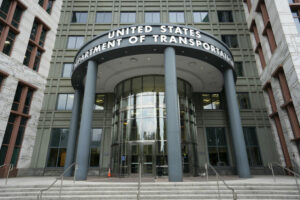
Organizations and members of the trucking industry are speaking out against a newly finalized piece of legislation from the Department of Labor that aims to prevent workers from being misclassified as “independent contractors.” Members of the industry argue that the new rule, which rolls back a Trump-era standard for employee classification, could create uncertainty for truck drivers and the organizations that employ them, according to The Trucker.
Todd Spencer, the president and CEO of the Owner-Operator Independent Drivers Association (OOIDA), said that some details in the new rule disregard specifics related to the trucking industry, which could eventually lead to truckers being reclassified from independent contractors to employees.
“Truckers are tired of the endless parade of classification rules that do not listen to their concerns,” Spencer said. “This constantly changing landscape has created uncertainty that makes it more difficult for them to operate their businesses.”
“As we have stated before, any classification rule must allow for owner-operator relationships to be examined on a case-by-case basis,” he added. “This approach has historically allowed owner-operators to work as independent contractors and generally protected workers from misclassification. As we continue to review the final rule and engage with the Department and Congress about this rulemaking, we will fight to protect the rights of small-business truckers, owner-operators, and all of America’s hard-working truckers.”
In a statement, Joni Casey, the president and CEO of the Intermodal Association of North America (IANA), described the new requirements as “burdensome,” adding that the rule threatens to force the “reclassification of over 80% of intermodal drayage drivers” that currently operate as independent contractors.
“For decades, the independent contractor business model has been widely favored by intermodal motor carriers and drivers,” Casey said. “By maintaining control over their schedules, opportunities and business decisions, independent drivers are highly incentivized to provide safe, efficient and cost-effective services that contribute to our nation’s economic growth.”
- SEO Powered Content & PR Distribution. Get Amplified Today.
- PlatoData.Network Vertical Generative Ai. Empower Yourself. Access Here.
- PlatoAiStream. Web3 Intelligence. Knowledge Amplified. Access Here.
- PlatoESG. Carbon, CleanTech, Energy, Environment, Solar, Waste Management. Access Here.
- PlatoHealth. Biotech and Clinical Trials Intelligence. Access Here.
- Source: https://www.supplychainbrain.com/articles/38842-trucking-industry-bodies-oppose-new-dol-classification-rule
- :has
- :not
- a
- About
- According
- added
- adding
- against
- aims
- All
- allow
- allowed
- america
- and
- any
- approach
- ARE
- argue
- AS
- Association
- back
- basis
- BE
- been
- before
- being
- bodies
- business
- business model
- businesses
- by
- carriers
- casey
- ceo
- changing
- classification
- Concerns
- Congress
- constantly
- continue
- Contractor
- contractors
- contribute
- control
- cost-effective
- could
- create
- created
- Currently
- decades
- decisions
- Department
- Department of Labor
- described
- details
- difficult
- do
- drivers
- Economic
- Economic growth
- efficient
- Employee
- employees
- Endless
- engage
- eventually
- fight
- final
- finalized
- For
- Force
- from
- generally
- Growth
- Have
- he
- highly
- historically
- HTTPS
- in
- incentivized
- independent
- industry
- IT
- jpg
- labor
- landscape
- lead
- Legislation
- maintaining
- MAKES
- Members
- model
- more
- Motor
- must
- Nations
- New
- newly
- North
- north america
- of
- on
- operate
- opportunities
- oppose
- organizations
- our
- out
- over
- piece
- plato
- Plato Data Intelligence
- PlatoData
- president
- prevent
- protect
- protected
- provide
- related
- Relationships
- Requirements
- review
- rights
- rolls
- Rule
- rules
- safe
- Said
- Services
- some
- speaking
- specifics
- standard
- stated
- Statement
- that
- The
- their
- Them
- this
- threatens
- tired
- to
- truck
- Truckers
- Trucking
- Uncertainty
- we
- which
- widely
- will
- with
- Work
- workers
- zephyrnet











